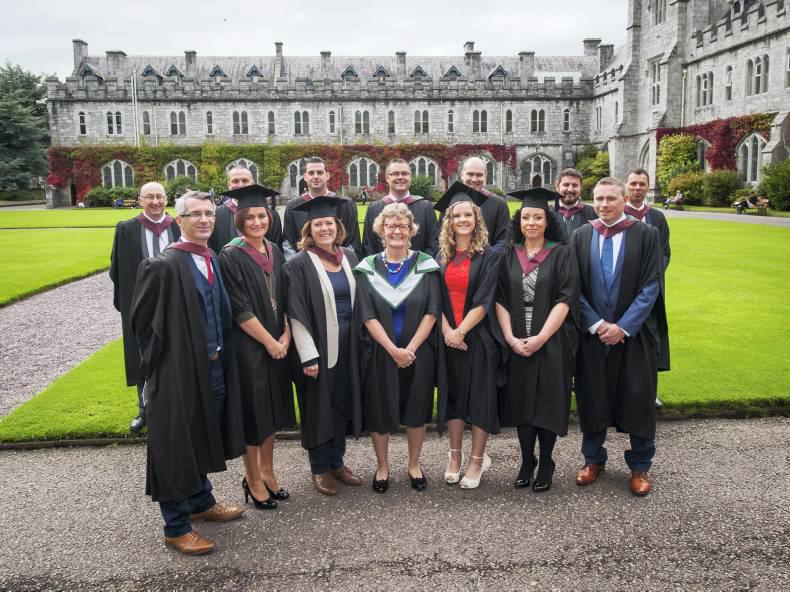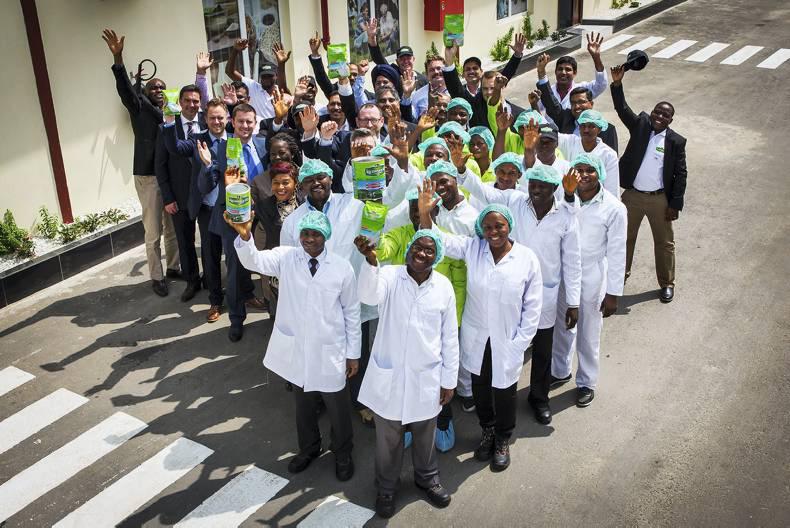The key message that is often missed about employment in the agri sector is that a lot of the time, you don’t have to have a qualification or experience in farming or ag science to work in it.
Agri companies need accountants, HR managers, IT specialists and marketeers too.
In 2015, Breffni Mushrooms, which produces – you guessed it – mushrooms, took on an accountant, ECI/JCB filled the role of credit controller, while Sheridan’s Cheesemongers created a new position in sales and marketing, and expects to create two new positions in the same area this year. And that’s just the tip of the iceberg.
Meat processing
Many of the jobs available in the meat processing sector are on the factory floor, but there are numerous opportunities for those without expereince or qualifications in agriculture or food.
ABP Food Group, for example, employs in excess of 10,000 people at over 35 processing facilities around the world, and ABP says that while experience in the food and agricultural sector is an asset, ABP is also happy to consider applications from candidates employed in other sectors, who can transfer their skill sets and expertise.
Many meat processors, including Kepak, ABP, Dunbia, Dawn Meats and Irish Country Meats, are large multinational businesses, so there are many sales and marketing opportunities where language skills are essential.
This export focus also creates many opportunities for working in logistics, arranging deliveries to all parts of the world.
Computerisation has transformed meat processing, and with that comes a requirement for IT specialists. Increasing food safety and quality assurance demands have created the need for companies to develop their laboratory capability, and these laboratories require science graduates and ancillary staff to operate them.
As many companies are now large multinational businesses, some with turnover in excess of €1bn, a high level of corporate governance is also essential, which creates opportunities for graduates and ancillary staff in accounting, HR, and other administrative and management skills.
The top meat-processing companies have comprehensive graduate trainee schemes. One such meat processor is in the poultry sector, which runs a graduate programme is Moy Park.
This programme covers areas from communications and interpersonal skills to commercial acumen and financial awareness. As well as completing training modules and work placements covering different disciplines, graduates will also benefit from a bespoke management development programme.
Interestingly, Fintan Hogan from Hogan’s Farm/Faughan Foods (this operation produces both raw and cooked poultry meat) told the Irish Farmers Journal in November that it is very hard to get people in the area of quality and technical.
“There is such a big emphasis on it because of the requirements of multiples, namely supermarkets. There’s a shortage of people qualified in this area because there’s such a demand for them.”
Dairy co-ops
The dairy co-ops also provide a lot of employment that you don’t need a qualification or experience in agriculture for, and there are lots of opportunities for graduates in particular.
In the 12 months between November 2014 and 2015, Kerry Group took on 324 new hires in the Republic of Ireland. This included 22 graduate positions.
Director of Corporate Affairs Frank Hayes told the Journal in November that although Kerry hires some ag graduates, employment within the group doesn’t tend to be in the traditional agri area.
Rather, opportunities are to be found within ICT, chemistry, engineering, quality, environment, but most of all in finance, which is the biggest area of recruitment for the company.
Kerry Group’s Global Technology & Innovation Centre in Naas currently accommodates 800 research, product commercialisation, business development and business support positions and will accommodate a further 100 positions by the end of 2016.
The primary source was graduate recruitment of approximately 150 graduates per year in 2013 and 2014, across a range of disciplines.
In 2015, Glanbia took on 58 graduates and it is expected a further 65 graduates will join Glanbia in 2016. Dairygold has taken on 60 graduates over the last four years, and Aurivo took on graduates for their Leadership Development Programme last year and is doing so again this year.
Ornua currently has roles across its food technology, commercial, legal, marketing, design, branding and trading teams.
While Ornua’s headquarters is based in Ireland, it has sales and marketing teams based in its core markets of Germany, the US and the UK and the emerging markets of China, the Middles East, North Africa and Africa.
Machinery
The machinery sector, in particular, has a lot of opportunity for those who have studied engineering.
Product engineers and mechanical engineers were taken on in Dairymaster in 2015. While McHale, which makes balers and bale wrappers, recruited for electronic engineers and design engineers. McHale will be taking on mechanical engineers, an electronics design engineer and a software engineer to name just a few.
Machinery companies also frequently recruit for sales people, welders and steel fabricators. In terms of ag tech, Framflo, a farm records software company, plans to recruit 40 people in 2016, all in newly-created positions.
The positions cover areas such as business development, product development, sales and online business. In the food sector, roles that are frequently advertised are in the areas of marketing and new product development.






 This is a subscriber-only article
This is a subscriber-only article












SHARING OPTIONS: